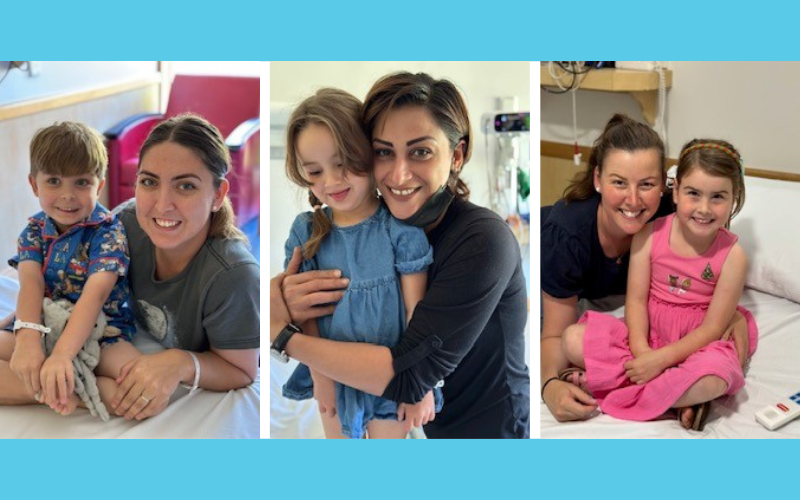
A research program, which enables over 25 important respiratory research studies to be undertaken, celebrated the recruitment of its 300th participant on 14 December 2022.
The Western Australian Epithelial Research Program (WAERP) is a community cohort biobank that collects and stores respiratory epithelial cells from the upper (nose) and lower (trachea) airways of Western Australian children and adults undergoing non respiratory elective surgery.
Airway cells are known to be the first line of defence against respiratory viruses, bacteria, pollutants and allergens.
The WAERP biobank supports numerous and diverse research studies intended to improve understanding and assessment of treatments for respiratory conditions.
These research studies would not be possible without the participation of families like the McHugh/Bruce, Starcevich and Tassone families, all of whom signed up to participate in the program on the ‘300 milestone’ day.
The program, which has been running since 2016 is now at a half-way point. In this time, the samples have enabled national researchers to utilise samples from the biobank for over 25 studies in areas including cystic fibrosis, asthma, the effects of being born premature, the consequences of our environment and other chronic respiratory diseases.
These studies are run by researchers at the Wal-yan Respiratory Research Centre – a powerhouse partnership between The Kids Research Institute Australia, Perth Children’s Hospital Foundation and Perth Children’s Hospital - together with interstate research teams in Queensland and South Australia and overseas collaborators in France and the USA.
WAERP Study Recruitment Officer Amy Greenly said that by taking part in the program, the participants are bringing hope for people with respiratory conditions.
“When people take part in this program, the whole community benefits, bringing new hope for people with respiratory conditions through the research that is able to take place,” said Ms Greenly.
It’s amazing to think that future generations, potentially even the participant’s children or grandchildren, may benefit from their choice to take part.
“Today we celebrate the McHugh/Bruce, Starcevich and Tassone families on our 300-milestone day - I would like to thank them for taking part, as well as acknowledge and thank the staff on ward 40 at St John of God Subiaco Hospital, and all of the other participants who have taken part in this research program.”
Find out more about the Western Australian Epithelial Research Program here
Learn how you can be involved with The Kids Research Institute Australia here
